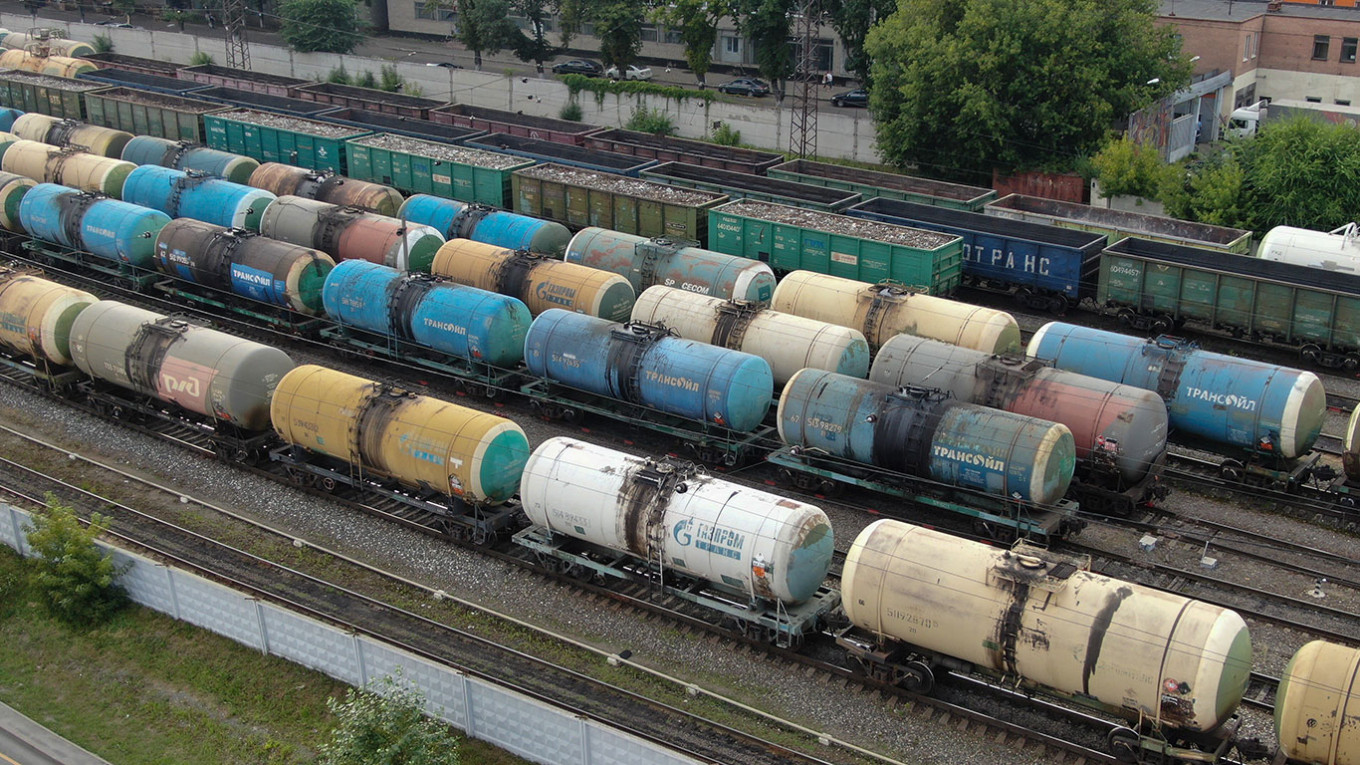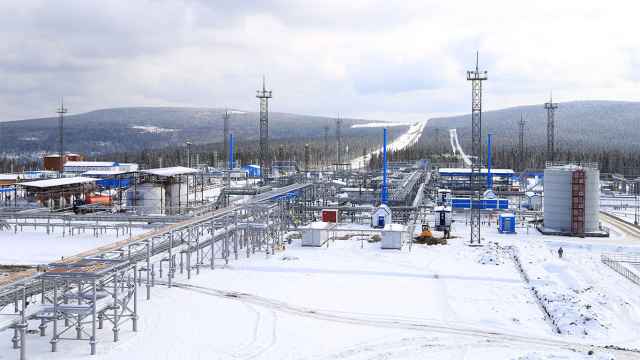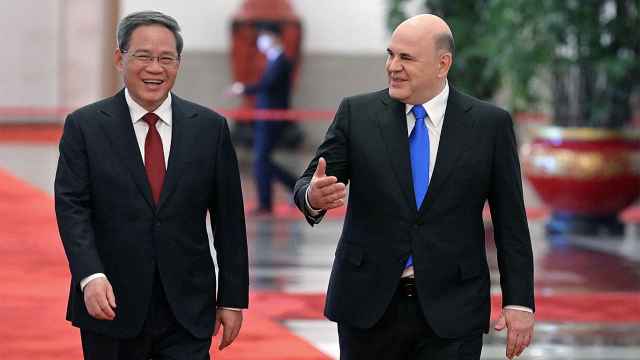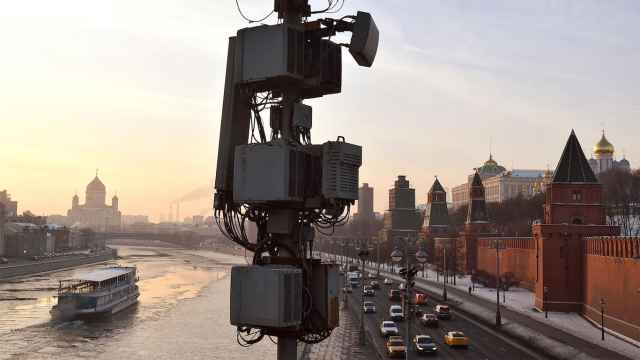Russia's economy has been hit by severe sanctions as the country's invasion of Ukraine escalates, and analysts point to neighboring China – which has yet to condemn the attack – as an increasingly important trade partner.
Beseiged Ukraine, meanwhile, supplies China with key commodities such as corn, though trade levels remain small.
What do the numbers say?
Largest trade partner
China has been Russia's largest trading partner for over a decade, according to commerce ministry data, with energy and mineral products making up the bulk of Chinese imports.
But bilateral trade and investment remain small relative to China's total shipments.
China bought $79 billion in Russian products last year while selling it $68 billion of its own, according to customs figures, representing just three percent of imports and two percent of exports.
Trade with Ukraine makes up an even smaller amount.
But Ukraine primarily exports useful commodities, such as iron ore and corn, to China and is a key node in Beijing's Belt and Road Initiative – a trillion-dollar push to boost Beijing's trade links globally.
Energy-intensive
China’s trade with Russia is "energy-intensive and strategic", according to ANZ economists, and the ongoing supply could be at risk given financial sanctions.
On average, China bought more than 1.5 million barrels of crude oil every day from Russia last year – making up 16 percent of China's total oil imports.
Meanwhile, Russian natural gas supplied five percent of China's overall demand.
With oil prices surging as war rages, it does not bode well for China as the world's biggest crude oil importer.
Food security
China's direct trade with both Russia and Ukraine is linked to concerns over food security.
About a third of China's corn imports are from Ukraine, research firm Plenum noted, and this could "pose a problem if that trade is disrupted."
Much of the corn is used for feeding pigs meant to sate Chinese consumers' huge demand for pork, a staple meat in the country.
Beijing has also recently lifted restrictions that barred shipments of wheat and barley from some areas of Russia over concerns related to a crop fungus.
However, Chen Long, partner at Beijing-based consultancy Plenum, has noted that most of China's rice and wheat is grown domestically, meaning the impact is limited.
Financial links
Russia is a "large investor in China's bond market", ANZ said, with state-held RMB asset holdings totalling some $140 billion, nearly a quarter of total foreign holdings.
"Only 17 percent of bilateral trade is settled in renminbi at the moment, but that could change rapidly in order to keep goods flowing," said Julian Evans-Pritchard, senior China economist at Capital Economics.
A Message from The Moscow Times:
Dear readers,
We are facing unprecedented challenges. Russia's Prosecutor General's Office has designated The Moscow Times as an "undesirable" organization, criminalizing our work and putting our staff at risk of prosecution. This follows our earlier unjust labeling as a "foreign agent."
These actions are direct attempts to silence independent journalism in Russia. The authorities claim our work "discredits the decisions of the Russian leadership." We see things differently: we strive to provide accurate, unbiased reporting on Russia.
We, the journalists of The Moscow Times, refuse to be silenced. But to continue our work, we need your help.
Your support, no matter how small, makes a world of difference. If you can, please support us monthly starting from just $2. It's quick to set up, and every contribution makes a significant impact.
By supporting The Moscow Times, you're defending open, independent journalism in the face of repression. Thank you for standing with us.
Remind me later.






